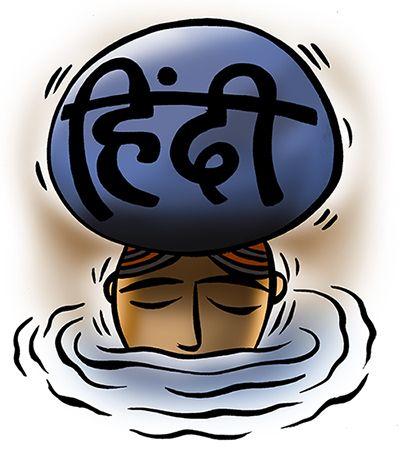A parliamentary committee has recommended that the medium of instruction in technical and non-technical higher education institutes such as IITs in Hindi-speaking states should be Hindi and in other parts of India their respective local language. It said the use of English should be made optional.

The end of compulsory English language question paper in the recruitment examinations and adequate arrangement for Hindi translation in the orders of the high courts in Hindi-speaking states are among over 100 recommendations made by the committee in its latest report.
In its 11th report presented to President Droupadi Murmu last month, the Committee of Parliament on Official Language, headed by Union Home Minister Amit Shah, recommended that local languages should be given preference over English in all states.
The committee has framed the recommendations as per the new National Education Policy (NEP) which suggested that the medium of instruction should either be official or regional languages.
The committee has suggested that Hindi should be given a respectable place in 'A' category states and it should be used 100 per cent.
The medium of instruction in IITs, central universities and Kendriya Vidyalayas in Hindi-speaking states should be Hindi and in other parts of India their respective local language, the panel recommended.
All states and Union territories are divided in three groups (regions) on the basis of progressive usage of Hindi.
Uttar Pradesh, Bihar, Madhya Pradesh, Chhattisgarh, Uttarakhand, Jharkhand, Haryana, Himachal Pradesh, Rajasthan, Delhi and Andaman and Nicobar Islands are in category 'A'; Gujarat, Maharashtra, Punjab, and the Union territories of Chandigarh, Daman and Diu and Dadra and Nagar Haveli are in category 'B'; and the rest of India is categorised as 'C'.
The panel noted that officers and employees in the central government who deliberately don't work in Hindi in Hindi-speaking states should be warned and if they don't perform despite warning, it should be reflected in their Annual Performance Assessment Report (APAR).
Other recommendations include communication by central government offices, ministries or departments, such as letters, faxes, and emails, should take place in Hindi or local languages, simple and easy language should be used in official work and invitation letters, speeches, and moderation for any events organised by the central government should all be in Hindi or local languages.










 © 2025
© 2025